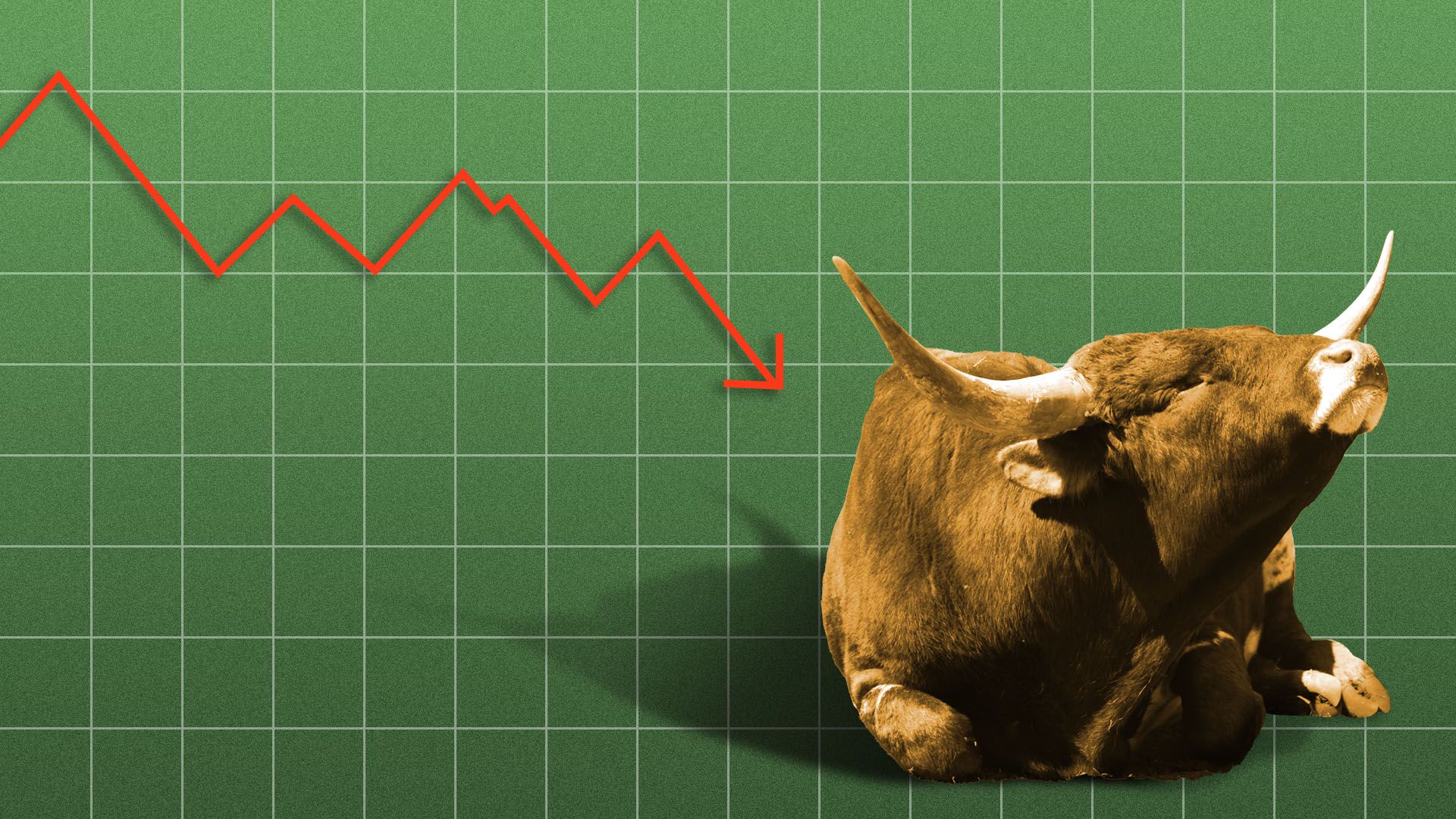S&P finds record low credit-ratings downgrades
Add Axios as your preferred source to
see more of our stories on Google.

Illustration: Sarah Grillo/Axios
The number of companies around the world that had their credit ratings downgraded from investment grade to speculative grade — so-called fallen angels — hit the lowest level in 23 years, S&P Global reported Thursday.
Context: There were only 19 fallen angels last year, which marked the fourth consecutive year the number has declined, the longest stretch on record.
But, but, but: While BBB-rated bonds grew to a record 50% of all outstanding investment grade U.S. corporate debt last year, downgrades fell to a record low 0.3%, data from BofA Global Research found.
- The number of “zombie companies,” or businesses with interest payments higher than their annual earnings, has reached a level not seen since the global financial crisis, BofA estimated.
- And the percentage of public companies in the U.S. losing money over 12 months has risen close to 40%, its highest level since the late 1990s outside of post-recession periods, WSJ reported.
Why it matters: Many companies appear to be holding their investment grade ratings by adding significantly to their debt load.
- "Last week, researchers at the Federal Reserve Bank of New York also warned that downgrades to the flood of bonds sitting at the lower end of the investment-grade spectrum pose a financial stability concern," MarketWatch's Joy Wiltermuth writes.
- "In October, the International Monetary Fund said that some $19 trillion of corporate debt globally could be at risk in a recession that is half as severe as the global financial crisis, in its annual global financial stability report."
On the other side: The global tally of companies with credit ratings upgraded to investment grade from speculative grade was 22 in 2019 — the lowest in 10 years.
Go deeper: S&P 500 companies expect declining earnings and profit margins for Q4
